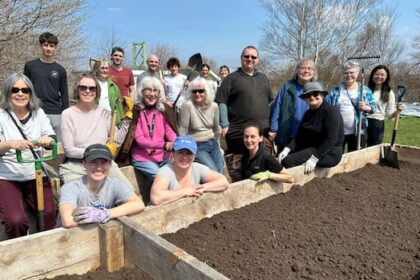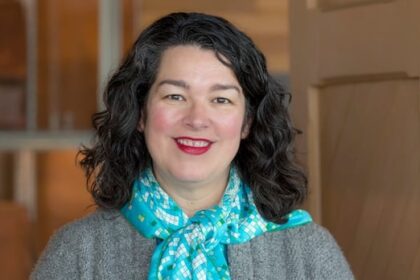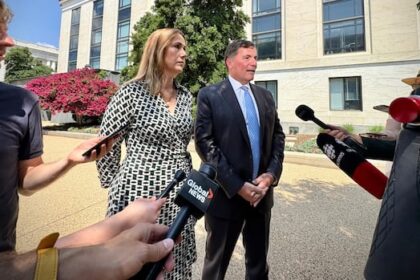Whatever our feelings for Justin Trudeau or our own partisan leanings, Crown-Indigenous relations had settled into a somewhat stable and predictable pattern after nine years. We had become very familiar with the leaders, their personalities and governing styles. But we have a new Parliament with a new prime minister and a different cabinet. And bear in mind that Canada’s internal governance has changed at the same time that Trumpism has thrown the world order into upheaval. So, what could this mean for Indigenous issues? We all remember the speeches in the House of Commons when Justin Trudeau formed government and all the grand words: “nation-to-nation,” “self-determination,” “implementation of United Nations Declaration on the Rights of Indigenous Peoples.” Indigenous peoples had never heard such full-throated commitments. At the same time, Marc Miller, the former minister of both Crown-Indigenous Relations and Indigenous Services Canada, brought historic expenditures and investments in programs, services and infrastructure. Miller can also be recognized for issues of justice, like the long overdue settlement of the extensive child and family welfare discrimination that had been ordered by the courts. But when Trudeau failed to live up to his commitments and obligations, Indigenous folks could count on a handful of critics from the opposition parties to put some pressure on the government. Over the years, we got to know some of the personalities who carried our concerns and gave us a voice in the House of Commons. Many of the personalities have been Indigenous, those amongst us that share our marginalized background and dare to venture into colonial politics on our behalf. No one will forget Jody Wilson-Raybould—an Indigenous member of the Liberal cabinet—taking a principled stance against Trudeau and leaving both government and the party altogether. Those days are behind us and, yet across the floor of the chamber in this new Parliament, the question remains: which party is meaningfully shifting power, and which is content to tone-paint the same old colonial scaffolding? Let’s be clear, the federal parties each claim to support Indigenous peoples, but the brush strokes differ in depth. The current iteration of the Liberal Party of Canada, led by Mark Carney and forming government in the current Parliament, has rested on the laurels of Trudeau’s achievements, pointing to its historic level of investments to support Indigenous peoples. But the Carney Liberals are poised to put Trudeau’s “renewed, nation-to-nation relationship with Indigenous Peoples, based on recognition of rights, respect, co-operation, and partnership” in the back seat as Canada responds to Donald Trump’s tariff war. ISC Minister Mandy Gull-Masty, seen here on the set of APTN’s political show, Nation to Nation, is one of three Indigenous MPs named to the federal cabinet. Photo: APTN. To stave off threats to the Canadian economy, the Liberal government introduced Bill C-5, the One Canadian Economy Act. When the bill was introduced, it was met with deep scepticism from Indigenous peoples as the new law touted rapid approval of major projects that consist largely of extensive natural resource extraction in First Nations territories, sidestepping the Crown’s duty to consult, and threating to infringe both rights and title. With tariffs and trade dominating the parliamentary agenda, it’s difficult to hold out much hope for strong Indigenous advocacy in this new Parliament. At the same time, only 12 Indigenous individuals were elected, with five sitting with the governing Liberals. Of those, Mandy Gull-Masty (Cree) and Rebecca Chartrand (Anishinaabe) were appointed to key ministerial positions in Carney’s cabinet. These appointments matter. They shift the narrative, broaden the possibilities. But Indigenous peoples will judge this government not by the names on the ministerial list, but by the cases of justice, self-government, land-back, jurisdiction and economic sovereignty that follow. At the same, we see the same official opposition in a Pierre Poilievre-led Conservative Party. For many observers, the Conservatives operate largely within a colonial logic when it comes to Indigenous-Crown relationships. For example, one commentary argued that both Liberals and Conservatives “continue colonial approaches to Indigenous rights. But one is clearly worse than the other.” But the Conservatives have elected an Indigenous advocate in the first-term MP Billy Morin, a former chief of the Enoch Cree Nation. Morin, a young leader with a pragmatic bent, argues for “economic sovereignty” — the right of First Nations to control and profit from development on their lands. And true to Conservative economic views, Morin has pushed for smaller government in social affairs and the economy. Billy Morin, seen here on the 2025 campaign trail, was elected in the riding of Edmonton Northwest for the Conservatives. Photo: Leanne Sanders/APTN. In this vein, Morin has championed greater First Nation autonomy. “What we need is for the government to get out of the way. We [Indigenous Peoples] have always known how to run our own economies.” Morin has also made it a point to press the Liberal government to undertake meaningful engagement with First Nations on their rights and title, not just token involvement. Back in June when Bill C-5 was introduced in House of Commons, Morin advocated for consultation and inclusion of First Nations in the major projects envisioned by the law. But here the caution flag is raised. Conservative commitments to Indigenous issues often stop at consultation rather than structural shift. When Indigenous rights are presented in conflict with resource development or federal control, the Conservatives too often retreat to older tropes of Crown primacy. From the vantage of Indigenous nation-to-nation politics, the NDP’s framing is closer to a transformational paradigm shift that many desire. Indeed, the NDP election platform offered a stronger normative line, “Indigenous peoples deserve a true nation-to-nation relationship with Canada.” However, the 2025 federal election left the NDP a much smaller caucus. This Parliament returned an NDP so reduced in seats as to fall short of official party status. As a result, the NDP’s ability to enact any changes in government will likely be considerably constrained. But the party returned two Indigenous stalwarts in this tradition to the House of Commons: Leah Gazan (Lakota) and Lori Idlout (Inuk). Many observers of Indigenous politics will recognize both Gazan and Idlout as critical parts of the moral conscience of the Commons, forcing Indigenous issues onto the agenda and into public dialogue. But true support for Indigenous peoples in federal politics is less about new funding announcements and more about structural inversion: transferring control of programs, jurisdiction, land, and decision-making to Indigenous nations; establishing fiscal and legal arrangements rooted in recognition; ensuring that correspondence between funding and autonomy becomes the norm. At the very least, the promise of UNDRIP and the honour of the Crown doctrine must evolve from statements to operational practices. To know who truly advances Indigenous rights, you must look beyond party talking points and into the quiet work — and political risks — of those who refuse to let Indigenous justice become a ceremonial footnote. Continue Reading
Indigenous Voices in a new Parliament: Whos speaking up?

Leave a Comment










